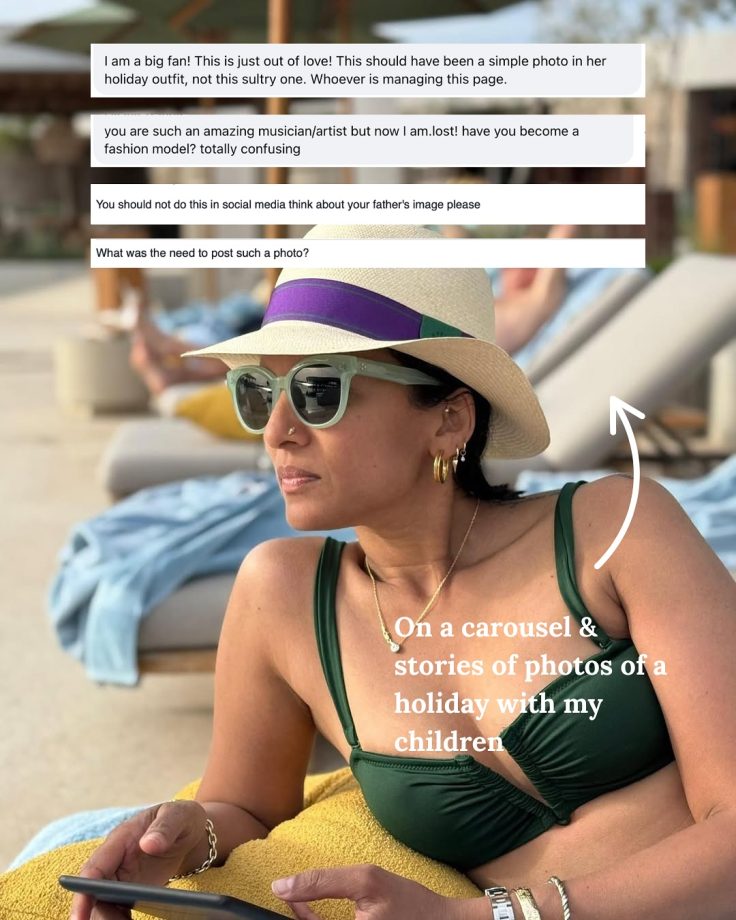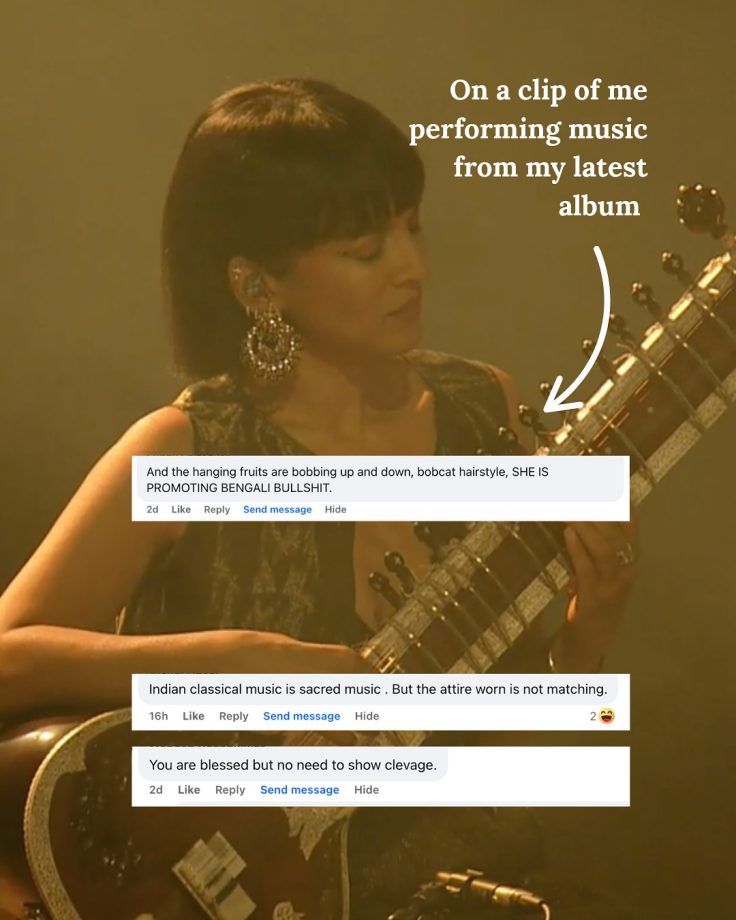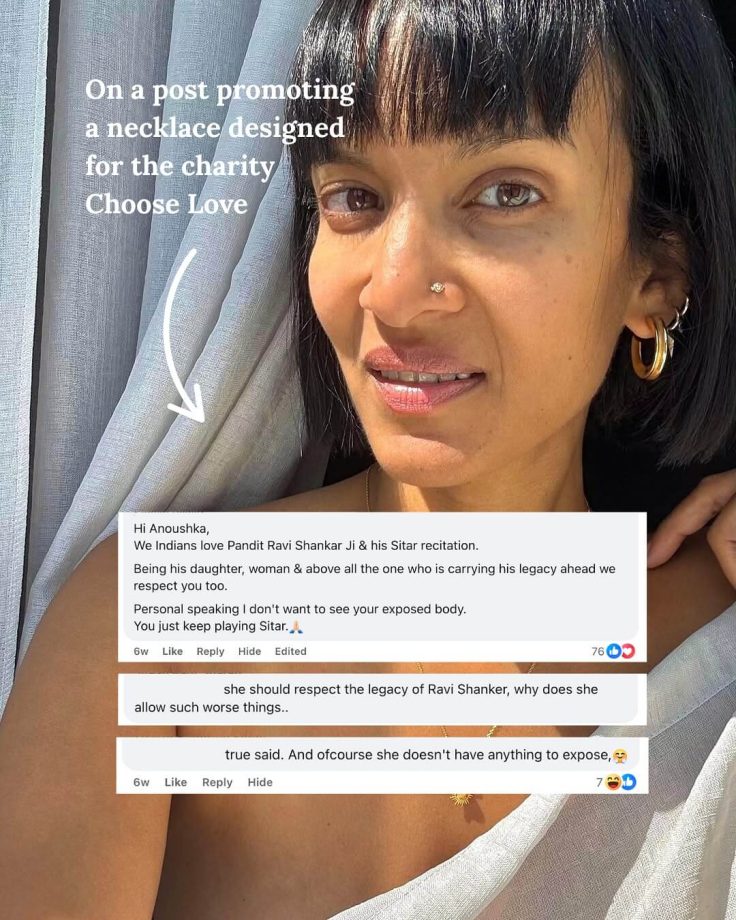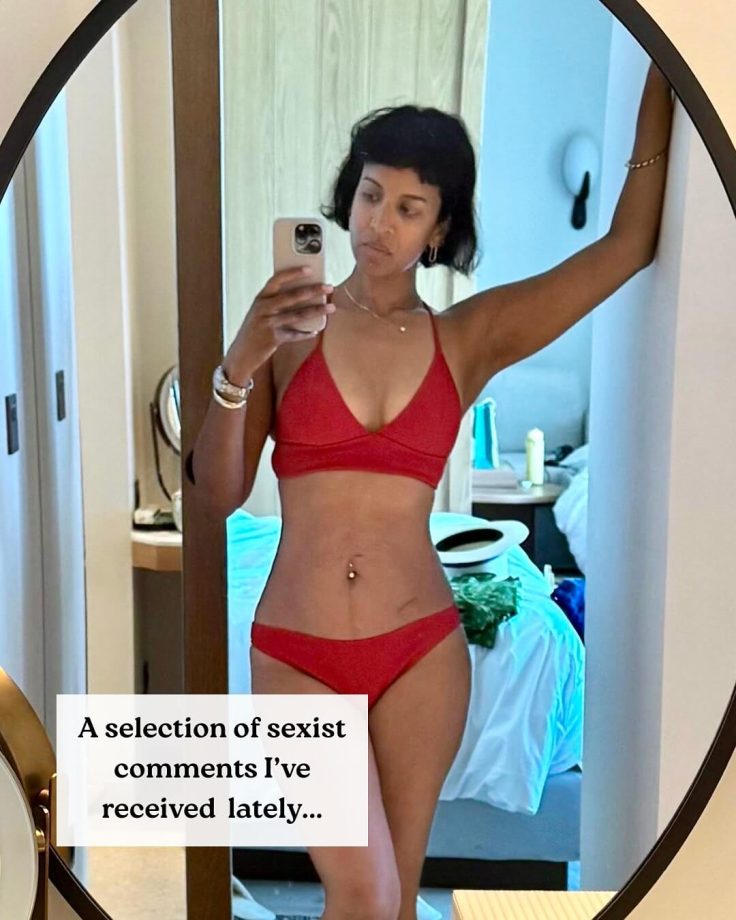It’s 2025. And women are still being forced to defend their right to exist in peace without commentary, without judgement, without being dissected online like public property.
This time, it was Anoushka Shankar, globally acclaimed sitarist, composer, and 11-time Grammy nominee, who was on the receiving end of body-shaming remarks. But instead of staying silent or brushing it off, she chose to speak. And what she said wasn’t just a response, it was a reckoning.
In a deeply personal Instagram post, Shankar reflected on the relationship she has with her body. Not in the way society demands, not filtered through aesthetics or desirability, but through lived experience. She wrote about everything her body has carried her through: surviving child sexual abuse, living with chronic illness, undergoing four major surgeries, battling addiction, navigating neurodivergence, and giving birth to two children. A body that has been through hell, and still shows up for her.
It was vulnerable. But it was also strong the kind of strength that doesn’t ask for validation.
And then came the words that cut through the noise:
“For the people in the back: My body is not anyone else’s to comment on. My choices — all of them — are mine to make.”




It’s stunning how something so basic still needs to be said. And yet it does. Because in 2025, women are still fielding comments, about their weight, their shape, their choices, their past, their parenting, their clothes, their age. Still being told how they should look, how they should act, what they should fix. Still being reduced to bodies instead of being recognised as whole human beings.
What makes Shankar’s post so impactful is not just what she said, but how she said it. She didn’t perform rage. She didn’t offer snark. She chose dignity, clarity, and complete ownership of her story — and in doing so, flipped the shame right back where it belongs.
This isn’t just about Anoushka. It’s about the thousands, millions, of women who’ve had their confidence chipped away by casual cruelty. Who have internalised shame that was never theirs to begin with.
Her post offered something rare in the age of online noise — a reminder that quiet defiance can be just as powerful as outrage. That telling your truth, without asking for permission, is its own form of protest.
It shouldn’t take a woman laying bare her medical history, trauma, and pain to shut down trolls. But since it does, Anoushka Shankar did it with grace and grit. And in doing so, she gave others permission to speak, to resist, to stop apologising for simply existing.
So yes, it’s 2025. And yes, we’re still screaming.
But women are no longer screaming into the void. We’re screaming together. Louder. Smarter. Clearer.
And we’re not backing down.

